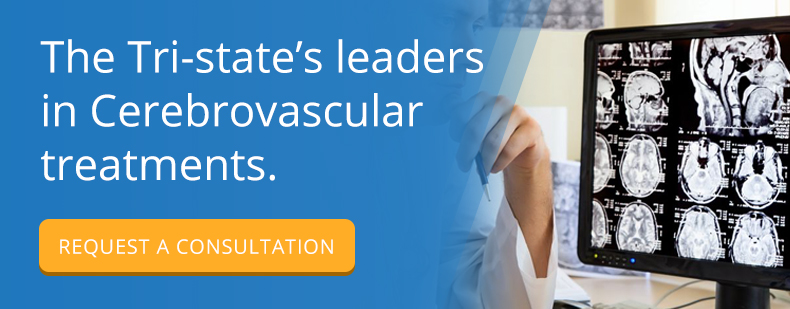Cavernous malformations make up about 15 percent of all vascular malformations of the brain and spine. These abnormal clusters of blood vessels can alter blood flow or leak, causing a variety of neurological and cognitive symptoms that may require surgery. If you’re a candidate for cavernous malformation surgery, finding the right doctor is important. By conducting a bit of research and having a willingness to ask some questions, you can easily find the surgeon who is the right fit for you.
Cavernous Malformation Surgery
Cavernous malformations, also known as cavernomas or cavernous angiomas, are groups of abnormal blood vessels primarily in the brain and spinal cord that are characterized by distended, blood-filled “caverns.” Blood tends to flow slowly through these clusters, and weaknesses in cell walls can cause them to leak blood into surrounding tissues.
Impaired blood flow and leakage can cause a variety of symptoms such as headaches, weakness in the limbs and stroke-like problems with coordination, vision and speech. More serious symptoms include hemorrhaging and seizures.
Although there currently isn’t a drug therapy to treat cavernous malformations themselves, medication can manage some symptoms such as headaches or seizures. But if a lesion hemorrhages or causes seizures or stroke-like symptoms, a surgical procedure called a craniotomy may be necessary to remove it. Lesions that are in especially vulnerable areas like the brainstem or spinal cord might also need to be removed to reduce the risk of serious complications in the future.
Cavernous malformation surgery is usually performed by neurosurgeons who specialize in cerebrovascular conditions. Patients typically spend a few days in the hospital and then recover at home. Many are able to resume a normal life, but for those who have some remaining impairments such as deficits in speech, coordination or memory, rehab or support services might be needed too.
Choosing Your Doctor
To locate a specialist who has the qualities and qualifications you’re looking for, the “Three Rs” — research, reviews and referrals — can help.
Before you begin searching, make a list of the things you need to know about a doctor and the qualifications you think are especially important. Your list might include things like:
- Number of procedures performed
- Board certifications and specializations
- Awards, honors and research in the field
- Years in practice
- Hospital and clinic affiliations
- Disciplinary actions or malpractice suits
- Experiences of patients like you
Both new technology – websites, forums and review sites – and old strategies like simply asking questions can help you get the information you need.
Online Profiles and Websites
A visit to the doctor’s website, or the sites of any hospitals or clinics where he or she practices, can provide a range of information about professional qualifications, affiliations and specializations. On a clinic site or your doctor’s personal page, you’ll be able to find out about the doctor’s education and training in subspecialties as well as any published research in the field, board certification and additional experience. Personal bios can also reveal important information about a doctor’s philosophy and approach.
Reviews and Testimonials
Professional profiles and clinic websites frequently include patient reviews and testimonials about their experiences. Dedicated consumer review sites include reviews of professional services and practitioners of all kinds, so you may want to search these kinds of sites for your doctor’s name or any clinics he or she is affiliated with.
You can also visit forums dedicated to your specific medical conditions for general insights into actual experiences with the surgery you’ll be having. Although these forums probably won’t mention your doctor, they can reveal red flags to watch out for. Look at both positive and negative reviews for a balanced view.
Referrals From Other Professionals
Ask your primary care provider and any specialists you’ve seen for referrals to neurosurgeons they recommend. Talk with them about your concerns and explain what qualities you’re looking for in a doctor. Investigate their recommendations by visiting the websites of the doctors they recommend.
Referrals from Friends and Family
Sometimes, the best referrals come from people you already know. Ask friends or family members for recommendations and talk with them about their experiences with a particular doctor or hospital. If you’re active on social media, let your friends and connections know you’re looking for a doctor and invite them to share information and reviews.
Medical Licensing Boards
A visit to your state’s medical licensing board’s site should be an essential part of your search for a doctor. Although the information you can access varies from state to state, much of it is public record. You may be able to learn if a doctor has faced disciplinary action or malpractice claims, or had licenses and privileges revoked.
Meetings With Doctors
If possible, schedule a meeting with your prospective doctor to discuss your situation. Make a list of questions you want to ask. Observe the office and other surroundings, as well as the interactions between the doctor and other staff. Pay attention to your own responses, too. Do you feel uncomfortable or disregarded? Is the doctor willing to take time to talk?
Cavernous malformation surgery can relieve symptoms and make it possible to return to normal life. With a lot of questions and a little research, you’ll be able to find the best doctor for your treatment and recovery.


